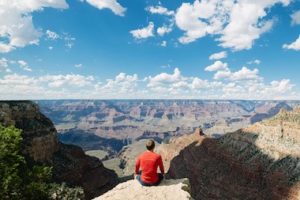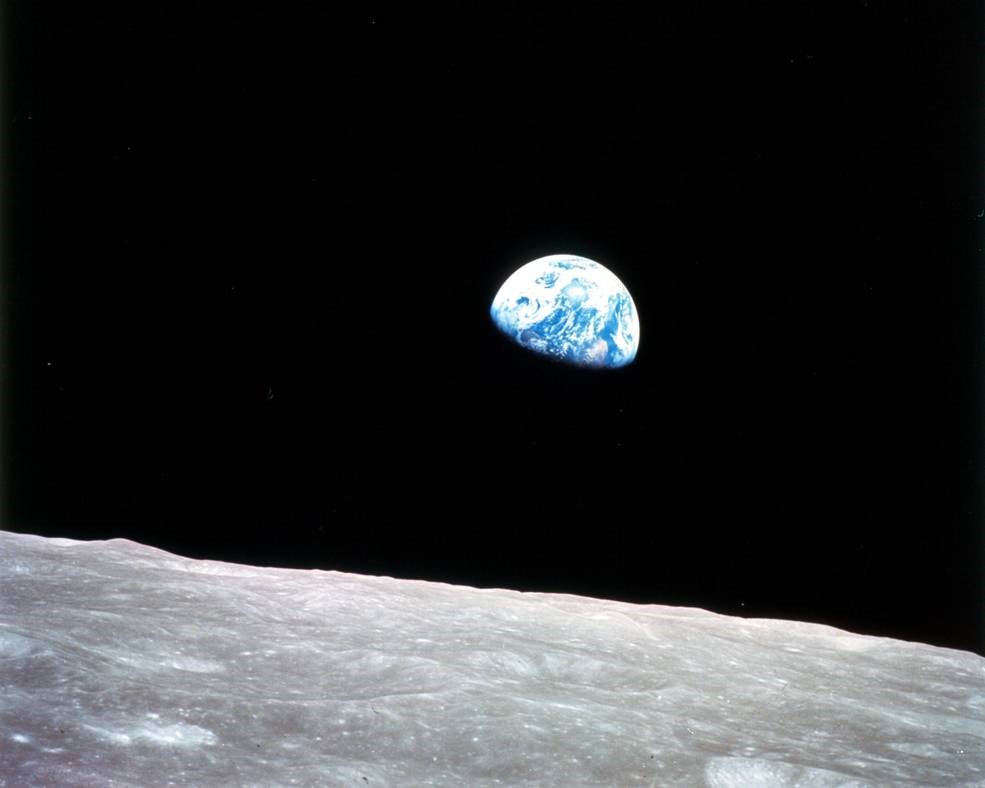Did you happen to experience last year’s solar eclipse in a region of its totality? It was certainly one of the year’s most anticipated events. And it didn’t disappoint. Watching the eclipse slowly unfold through special eclipse viewing glasses, waiting for that last sliver of sunlight to slip behind the moon, you begin to notice the eerie lighting, the silencing of the birds, and the sudden chill that attends the dramatic drop in temperature. Then the awaited moment arrives. At this point, it’s safe to remove the eclipse glasses and gaze upon the heavenly spectacle, naked-eyed. But then comes the unexpected. And there is nothing in one’s sense of the world that can prepare you for the experience. Rationally, you know exactly what is happening. You’ve read all about it, and even came prepared with the right equipment for viewing the event. But the actual experience of looking into the sun’s corona, alive, flaring like a halo around the darkened dilated pupil of a moon, is so utterly surreal and otherworldly that all your knowledge is of no help at all. The sight literally takes your breath away as you attempt to take in this something for which there are no mental hooks. You quite literally gasp in awe. For some, the experience is so overwhelming that they begin to weep.
Such an event, for all practical purposes, is nothing short of a religious experience. And in that moment, the assembled throng with whom you share this special event becomes a single, unified entity in the face this overpowering majesty. I vowed then to become a global eclipse chaser—just two and a half minutes of this rapturous spectacle is simply not enough. Especially when all sense of time is lost.

If we can experience such a thing from our Earth-bound perspective, imagine the crew of Apollo 8 gazing upon the Earth from space—“hanging in the void.” They, and other astronauts since, routinely report an ineffable yet visceral cognitive shift in awareness that has come to be called the “overview effect”—an overwhelming sense of awe over both the fragility and the unity of life on our little planet.
NASA astronaut Ron Garan explains this feeling in his book, The Orbital Perspective. “It was as if time stood still,” he writes, “and I was flooded with both emotion and awareness. But as I looked down at the Earth—this stunning, fragile oasis, this island that has been given to us, and that has protected all life from the harshness of space—a sadness came over me, and I was hit in the gut with an undeniable, sobering contradiction. In spite of the overwhelming beauty of this scene, serious inequity exists on the apparent paradise we have been given. I couldn’t help thinking of the nearly one billion people who don’t have clean water to drink, the countless number who go to bed hungry every night, the social injustice, conflicts, and poverty that remain pervasive across the planet.”
He goes on to say, perhaps most profoundly, that if we could all see the world from this extraordinary perspective, we would also see that nothing is impossible.
Hopefully more of us will be blessed with this perspective as space tourism gets off the ground. Or perhaps, in the meantime, virtual reality might be able to simulate the effect for us. This is something psychologists are increasingly exploring as they work to apprehend the little-understood nature of the awe response.
Michelle “Lani” Shiota, an associate professor of social psychology at Arizona State University, is one such scientist studying awe. Putting it into somewhat more clinical terms, “Awe,” she explains, “is an emotional response to physically or conceptually extraordinary stimuli that challenge our normal, day-to-day frame of reference, and are not already integrated into our understanding of the world.” Johannes Eichstaedt’s take on it is a little less academic. A computational social scientist in psychology, he concludes, “In the end, what we care about is how to induce these experiences. They help people in some ways be more adaptive, feel more connected, reframe troubles.”
So it turns out that awe is good for us—physically, spiritually, and emotionally—whatever its source, be it experiences of space, nature, music, art, or even sports. Jennifer Stellar at the University of Toronto has shown that experiencing awe reduces levels of cytokines, a marker of inflammation linked to depression. Other studies reveal that exposure to the awe of nature results in lower blood pressure and stronger immune systems.

And it’s practical, too. The experience of awe may be the key to solving a difficult problem: the mind opens up in ways it hasn’t previously. “But,” as another observes, “we can’t experience awe if what we’re seeing is always the same. We need to change our physical location or space. Purposely doing different things is vital.” In other words, in order to see the world differently we need to, well, see the world differently!
On a more personal level, awe has yet other interesting effects. It displaces ego, making us feel “small,” but in a positive way that simultaneously helps us to see we are a part of something larger than ourselves. As one observer put it, “Experiencing awe shifts our thinking from me to we.” Imagine that as a leadership quality to cultivate!
As to its capacity for improving problem solving skills, experiences of awe actually decrease tolerance for uncertainty. An experience of awe that reveals more questions and mystery creates a sort of “mental vacuum” that we’re compelled to fill. It runs up against our pre-formed expectations with the resulting uncertainties driving us to look at the world in a different way. Indeed we must because we are suddenly perceiving it in a new way. And that’s what makes it so powerful: it transcends our current understanding of things. The experience itself makes us more open and receptive to new possibilities.

Albert Einstein famously said, “One cannot help but be in awe when he contemplates the mysteries of eternity, of life, of the marvelous structure of reality. It is enough if one tries merely to comprehend a little of this mystery each day.”
And yet this world of mystery is right outside your front door. Wake up every morning and take it in. Of the smallest detail you encounter, ask why, how, what if? Resolve in every moment to live and thrive in a world amplified by wonder. You just might have an awesome day.


